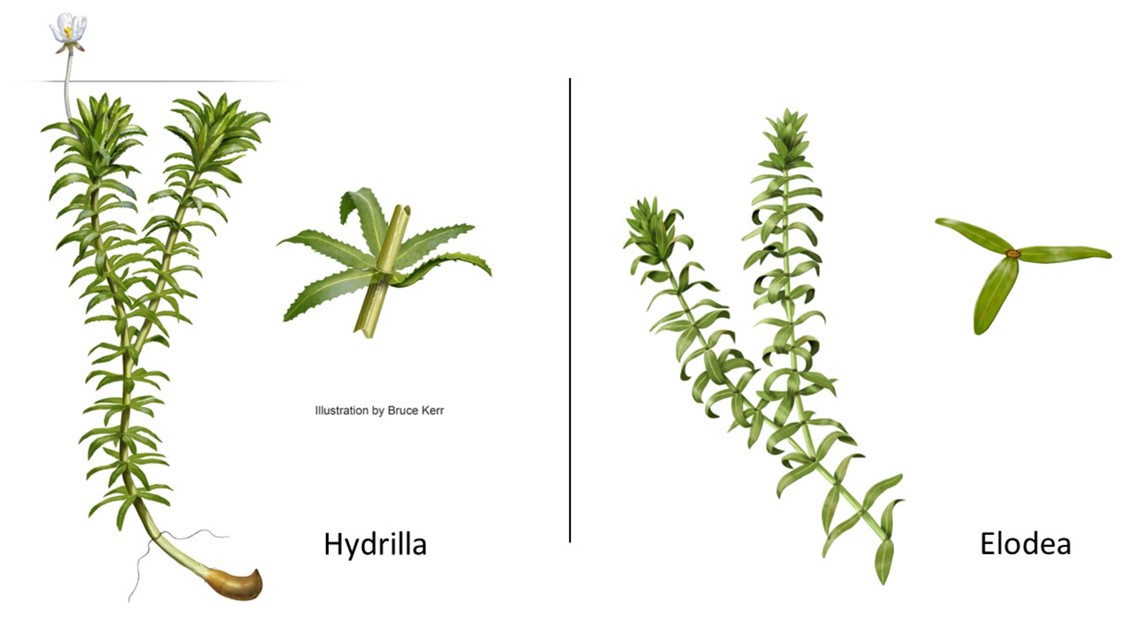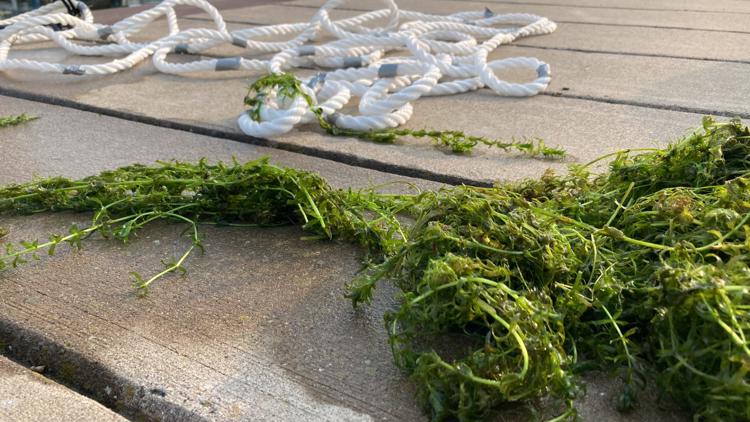MICHIGAN, USA — A highly invasive aquatic plant has been discovered in Michigan for the first time in history, the Michigan Invasive Species Program (MISP) says.
Hydrilla verticillata, or hydrilla, was spotted on a residential property in Berrien Springs. Two small patches were confirmed in adjacent private ponds.
Hydrilla is one of the most difficult invasive species to control in the country, MISP says. As it grows underwater, it can spread undetected after invading a body of water. It can grow in lakes, rivers, springs, marshes and ditches. The species can even tolerate low light and a lack of nutrients.
So, how did this invasion happen?
The MISP says it can begin from exotic plants, fish and other animals from stores being released in natural bodies of water. It can easily spread from one body of water to another through boats, trailers and other water gear.


Hydrilla can be easily confused with Canadian waterweed, or Elodea canadensis, a native and beneficial plant of Michigan waters. Hydrilla leaves are usually found in whorls of 4-8 (typically 5) around the stem and are toothed along the edges and midvein, while waterweed leaves are usually in whorls of 2-4 (typically 3) and teeth, if visible at all, are very small along the edges, MISP says.
The best thing to do if you spot hydrilla is to identify it with photos and descriptions, then report it. Any suspicious aquatic plants should be reported as soon as possible to EGLE-WRD-AIP@Michiagn.gov. You're asked to include close-up photos and provide the location of the plant.
You also should clean, drain and dry recreational gear between moving it from one body of water to another, and never dispose of unwanted bait in the water.
►Make it easy to keep up to date with more stories like this. Download the 13 ON YOUR SIDE app now.
Have a news tip? Email news@13onyourside.com, visit our Facebook page or Twitter. Subscribe to our YouTube channel.



